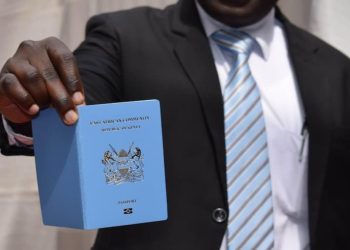From black-market trading to liberalised, technology enabled business
BY DERRICK VIKIRU
Forex, or foreign exchange (FX) trading is an international market for buying and selling currencies. Investors use forex trading to profit from the changing values of currencies based on their exchange rates. FX can be classified into institutional forex trading (banks and other big financial institutions) or retail forex (privately owned forex bureaus companies). Retail forex trading is no doubt a booming business in Kenya as people search for fast and efficient exchange services and investment alternatives. More Kenyans have gradually ventured into the practice, a move orchestrated by the regulation of the industry by the Central Bank of Kenya (CBK), fostering transparency and good governance.
Forex, thus far
In the same breadth, industry players in the forex subsector through the initiative of CBK have pooled together to form an umbrella body to oversee their practice in Kenya. Speaking to Management Magazine, the CEO of Kenya Forex and Remittance Association (KFRA) Mohamed Nur Ali, highlights the journey the industry has come since the dark days of black-market trading.
“The organisation started in 2011 as Kenya Forex Bureaus Association and later rebranded to Kenya Forex and Remittance Association, a move that was necessitated by the liberalisation of the forex market in Kenya and the emergence of not only, spot transactions but remitting of cash which was regularised by CBK through the Money Remittance Regulations 2013. This liberalisation saw some of the forex bureaus upgrade to remittance companies hence the name-change,” explains Mohamed.
Mohamed recalls the days of exchange control when holding foreign currency in Kenya was illegal; thus, the black-market trading of foreign currency flourished. Fast forward early 90s, Kenya’s economy was liberalised from the market protectionism, an economic policy restricting imports from other countries. The financial market was also liberalised, and in 1995 forex bureaus started operating. The market was further liberalised in 2013 allowing local money transfer companies to do foreign remittances.
Economic contribution
Mohamed prides in the leaps and bounds the industry has made and its economic contribution to the country. He notes that the sector is instrumental not only in being a government’s source of revenue (taxes and licensing fees) and providing employment but also contributes to general financial inclusion of Kenyans while offering support to other economic sectors like tourism and hospitality industry.
Adding to that, he attributes the increase in diaspora remittance in Kenya to the ease of service provision and competitive exchange rates that contributes to extra disposable income to the citizenry. A research note from Cytonn Investments shows that diaspora remittances increased by 42.5 per cent to USD2.2 billion during the first 10-months of 2018, from USD1.6 billion during the same period in 2017. “This can be attributed to a recovery of the global economy, and partly new partnerships between international money remittance providers and local remittance companies making the process seamless,” says Mohamed.
Much of the economic impact seen, he says, is from industry regulation, founded under the Banking Act, and adhering to all guidelines provided for by the CBK. “Just like banks, we too report all our financial transactions to the Financial Reporting Centre (FRC), and this has enabled us to curb fraud in the trade,” he avers. The regulations, he notes, have greatly contributed to legitimising operations and building public trust in the sector and stabilised the volatility of the forex market. Overall, lower volatility in forex trading means less risk in the economy. The forex market in Kenya is now more sophisticated making it less likely to be manipulated by money launderers and other criminals.
“The volatility has been rather low over the years. CBK has learned how to measure, anticipate, and adjust for inflation. Secondly, Central Bank policies are more transparent, clearly signalling what they intend to do, thus there’s a lower chance of the market overreacting,” says Mohamed. “The CBK has also built a stable foreign exchange reserve currently standing at USD8 billion which discourages currency speculation that creates volatility,” he adds.
Stable shilling
Although the government did not take deliberate steps to specifically support the industry’s growth, Mohamed notes that they have benefitted from the overall policy of growing the SME sector, where forex bureaus falls. He also notes that CBK has been friendly in regulating the sector as a way of nurturing it. Speaking on the global comparison of the Kenyan money market, Mohamed affirms that Kenya is a regional leader. He says Kenya’s strong position has been curved out by innovativeness of her people in creating FinTech solutions. He also alludes to the strength of the Kenya Shilling that has remained stable against its “de facto” anchor exchange rate with the US Dollar. According to Cytonn Investment’s Annual Economic Outlook report 2019, the Kenyan Shilling remained resilient in 2018, appreciating by 1.3 per cent against the USD during the year to close at KSh101.3, from KSh103.2 in 2017. Statistics show the same stability of the shilling has also protracted to 2019 as it keeps gaining against the USD, and it is expected to remain stable this year.
Asked about the future of forex trading in Kenya, Mohamed says that the industry has remained largely manual and warns that it should gear up for tech disruptions as FinTech’s are gaining interest in the sector. He says that cryptocurrency and other blockchain technology are also beckoning to revolutionise the sector.
Derrick Vikiru is the Sub-Editor Management Magazine. Email: dvikiru@kim.ac.ke
















